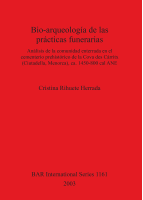Description
BOOK DESCRIPTIONThis book focuses upon the bio-archaeological study of the human remains recovered in a Prehistoric cave cemetery from Menorca (Balearic Islands, Spain) dated between 1450/1400 - 800 cal BC. Its research has benefited from methods and techniques developed by several disciplines (including human osteology, biological anthropology, forensics and paleopathology) in order to explore previously formulated hypothesis related to six major aspects: 1.) funerary practice; 2.) demography; 3.) biological variation;4.) diet; 5.) health and morbidity; 6.) main trend activities and 7.) social distance. The integration of independent results into a wider frame has allowed to distinguish several meaningful patterns. Segregation and relocation of skulls was a new feature added to the long-standing tradition of collective inhumation towards the end of the II millenium. The community experimented a limited growth conditioned by a low fertility rate and a high infant mortality. Infectious diseases were a more serious threat to health than the nutritional intake. Diet composition was varied and well-balanced, with enough rich-protein foods accessible to both sexes. Activity patterns also reflect the importance of livestock and gathering. No conclusive evidence of warfare isavailable in the whole series, as well as craft specialization. On the contrary, social relationships seem to have been ruled by cooperation.











